What did the Cartier-scented performance of Alexander Scriabin’s Prometheus smell like?
Cartier’s Mathilde Laurent and the San Francisco Symphony Orchestra created a synesthetic performance of Prometheus, the Poem of Fire. Shonquis Moreno reports on the experience for Wallpaper*

Receive our daily digest of inspiration, escapism and design stories from around the world direct to your inbox.
You are now subscribed
Your newsletter sign-up was successful
Want to add more newsletters?
The first collaboration between Cartier’s nose Mathilde Laurent, the San Francisco Symphony Music Director, Esa-Pekka Salonen, and pianist Jean-Yves Thibaudet, came to fruition this weekend (1-3 March 2024); a performance of Alexander Scriabin’s 1910 symphony, Prometheus, the Poem of Fire.
20 minutes in length, their interpretation of Scriabin’s tone poem was liberating and full of feeling, uniting sound, scent and light to multisensory and monumental effect. It was also cathartic, an antidote to the pandemic years, when we were unable to gather for cocktails, conflabs or concerts (and were afraid of simply breathing in deeply beside our best friends).
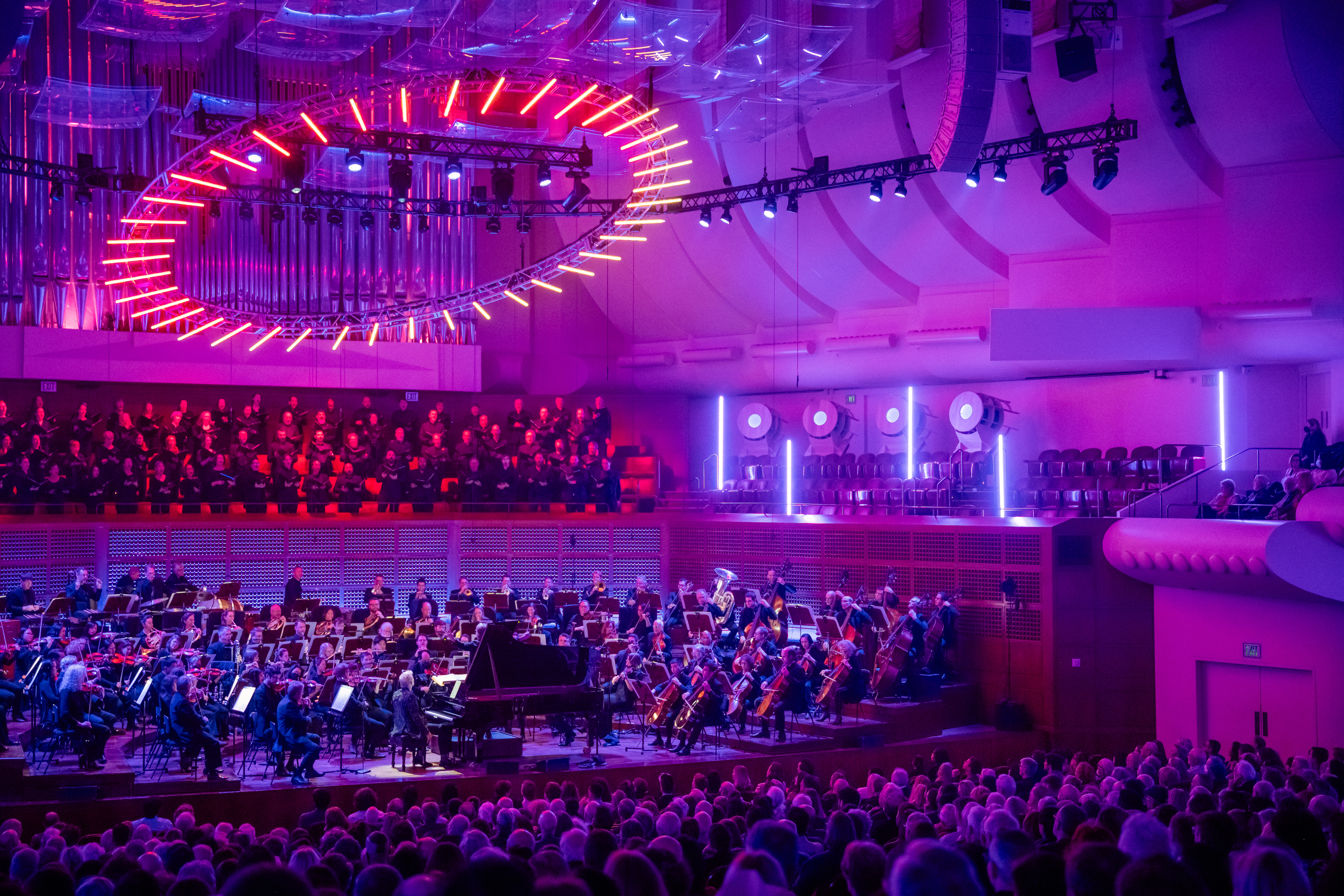
The San Francisco Symphony Orchestra perform Prometheus, a Poem of Fire by Alexander Scriabin
Cartier’s Mathilde Laurent on scenting Prometheus, the Poem of Fire
Scriabin, a Russian composer with synaesthesia, envisioned a total, consuming work of art around this seminal Greek myth. Prometheus steals fire from the gods and gives it to mortals, enabling civilisation and the arts to flourish. Scriabin scored Prometheus for light and colour, as well as music, and dreamed of drawing on all the senses, including smell. But the technology didn’t yet exist to perform it.
Of course, now it does. And on Friday (March 1 2024), above the 100-person orchestra and a 100-person chorus, a massive halo of light designed by Luke Kritzeck illuminated the hall in vivid hues aligned with Scriabin’s original ‘colour organ’, an instrument he created to link projected light to harmonic shifts. The music ranged from ethereal and shimmering to thunderous and rises from danger and dissonance into exultation. Releasing a fragrance that was subtle in degree but complex in composition, at three symbolic moments, Laurent's olfaction worked in tandem with the music to help the audience feel it in their bodies and minds.
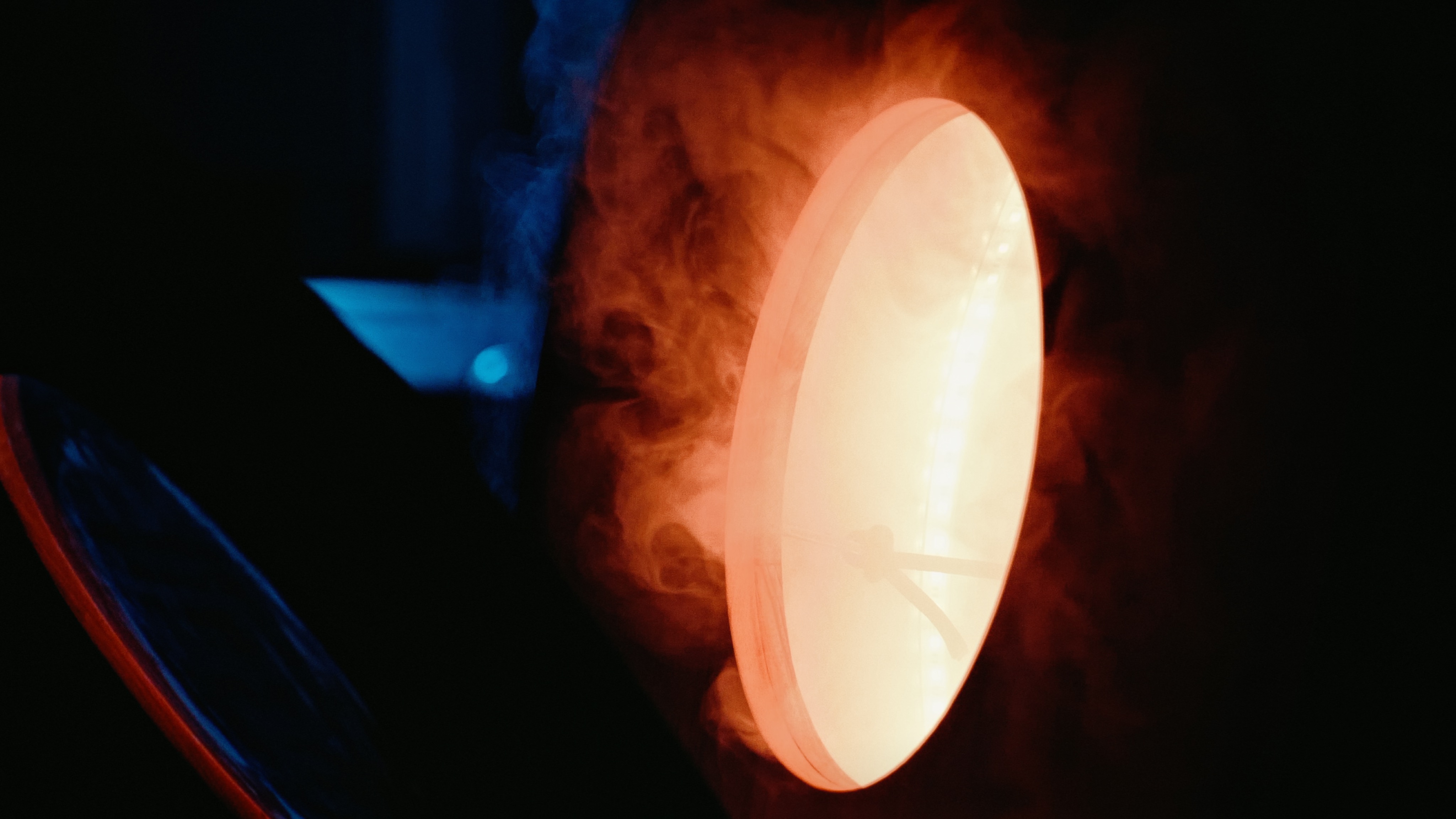
Prometheus, a Poem of Fire is scented by Mathilde Laurent of Cartier
Laurent crafted two original scent accords (fragrances not designed to be worn) to be released ‘Before’ and ‘After’ Prometheus’ gift. For the moment of giving, she chose an existing Cartier fragrance of her own design. The scents are dispersed using two methods purpose-built for the symphony by olfaction engineers in St. Malo. Small black cassettes installed beneath the seats use a non-aerosol, dry-air diffusion technique to propel air through capsules infused with scents. Without the alcohol-heavy vapour of perfume diffusion, they dissipate more quickly, allowing the audience to smell each without the lingering interference of the fragrance that preceded it.
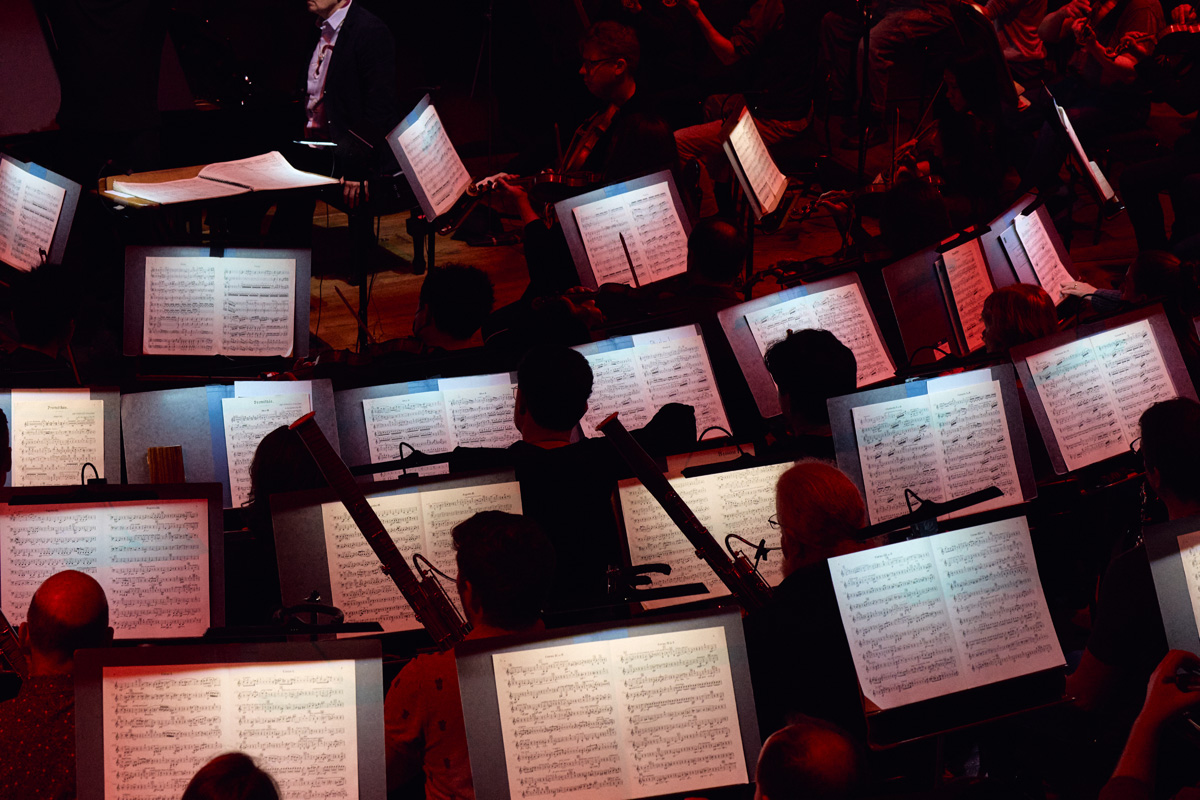
The San Francisco Symphony Orchestra perform Prometheus, a Poem of Fire
This technology underscores the affinities between musical composition and scent design. Both create something ephemeral and able to carry a narrative, both are abstract and evolving. ‘We use so much music vocabulary to explain olfactory creation,’ Laurent says. ‘The composition of music begins in the mind, with “notes” in the head of the musician as they are in the head of a perfumer. We talk of “harmony” in perfume and are also trying to create a “symphony”. Scent has a beginning and an end, a lapse of time during which different ingredients play at different moments, as do the instruments.’
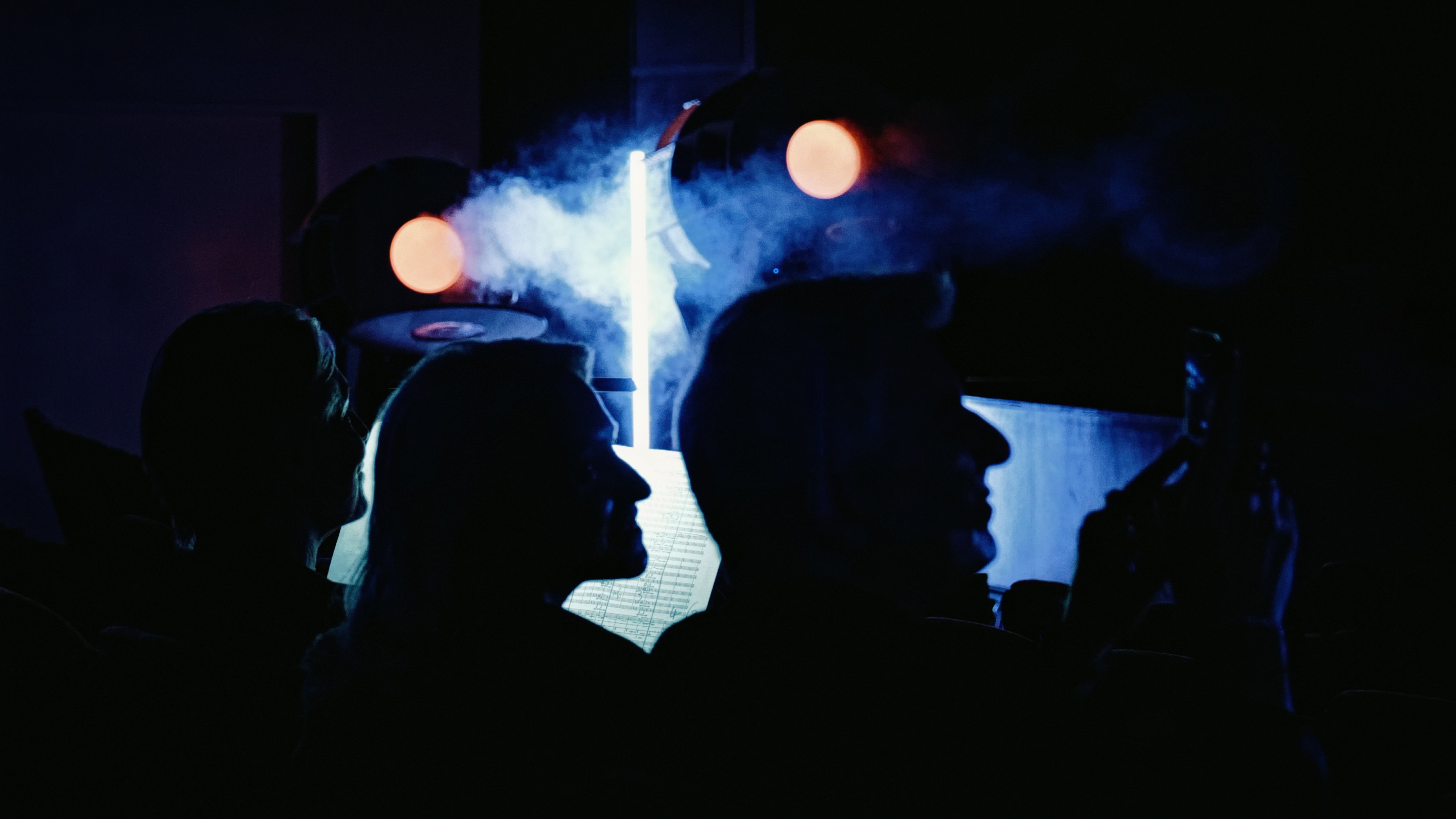
Mathilde Laurent of Cartier, the San Francisco Symphony Music Director, Esa-Pekka Salonen, and pianist Jean-Yves Thibaudet
Laurent’s ‘Before’ accord evokes a dark human struggle before the advent of fire through a petrichor quality of earth after rain, a stormy suggestion of ice, ozone and vegetation. When Prometheus offers the fire, the cassettes and 12 ‘cannons’ lining the hall broadcast notes of smoke and burnt wood, Laurent’s 2005 La Treizième Heure. This fragrance pays tribute to the origin of perfumery (and jewellery) in fire, which extracts the absolutes, essences and oils that are the building blocks of her art. (The word ‘perfume’ comes from the Latin per fumum, which means ‘through smoke’.) Then, in a triumphant crescendo, the ‘After’ accord depicts man’s elevation in hesperidic notes of hope and joy: bergamot, lemon and verbena, fresh grass, sunlight and warmth.
Receive our daily digest of inspiration, escapism and design stories from around the world direct to your inbox.
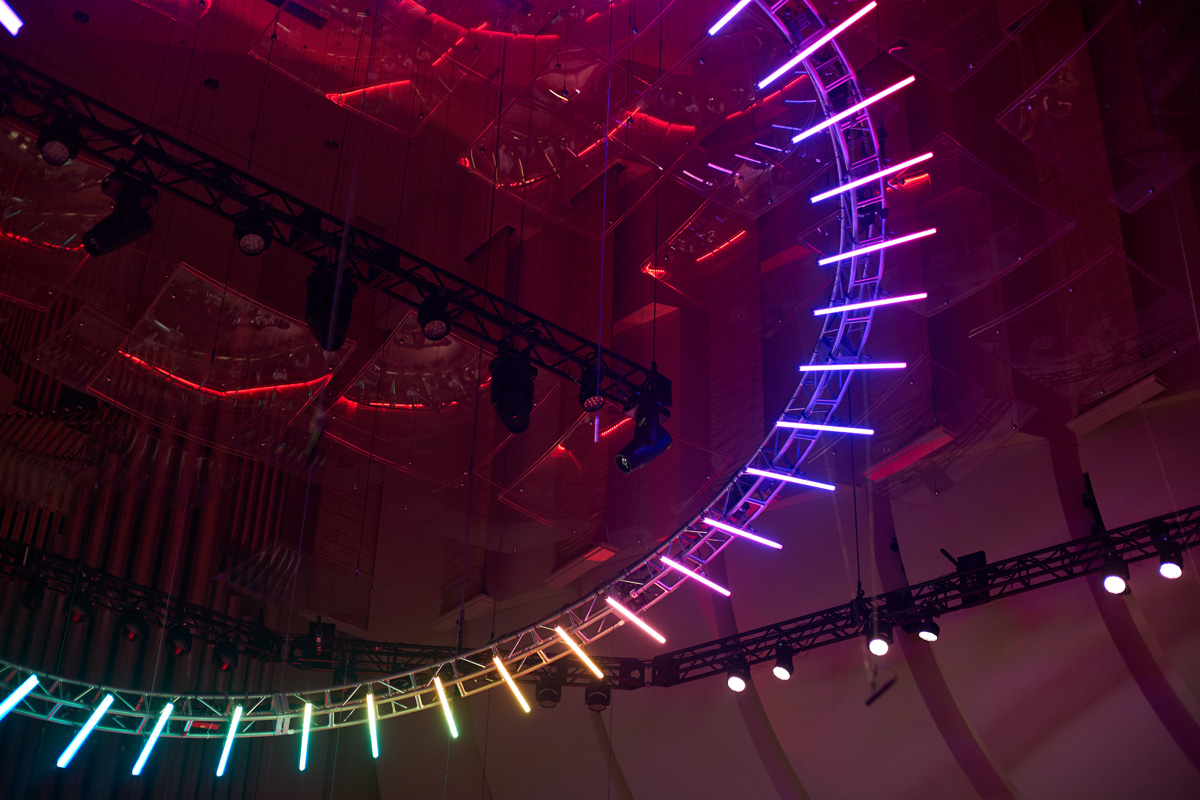
A halo of light designed by Luke Kritzeck references Scriabin’s original ‘colour organ’
Prometheus offers too much to explore in one sitting. The audience will want more. But it also requires that we take something we’ve denied ourselves for years: ‘It’s very important, during this performance, that you breathe in deeply,’ says pianist Jean-Yves Thibaudet. ‘It’s a very natural thing: suddenly, you are enveloped, and you won't even know what with. But it is something that will make you hear differently and see differently.’
Shonquis Moreno has served as an editor for Frame, Surface and Dwell magazines and, as a long-time freelancer, contributed to publications that include T The New York Times Style Magazine, Kinfolk, and American Craft. Following years living in New York City and Istanbul, she is currently based in the San Francisco Bay Area.